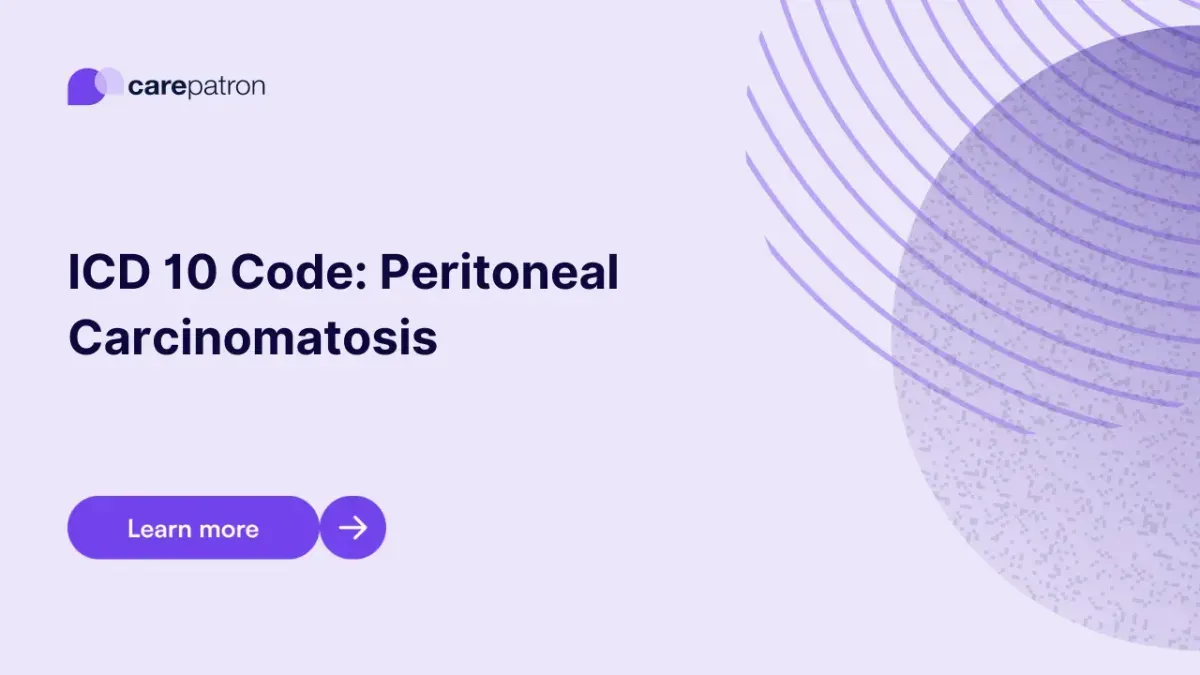
Peritoneal Carcinomatosis ICD-10-CM Codes
Read this short guide and learn about peritoneal carcinomatosis ICD codes you can use!
Use Code
Commonly asked questions
Given the carcinomatosis, no. There isn’t. There are no ICD-10 codes with peritoneal carcinomatosis in their name, so the ICD-10 code we indicated is the best choice. There is an ICD-10 code for peritoneum cancer (C48.2), but that’s specific to cancer that starts there. In contrast, carcinomatosis results from a pre-existing cancer that has spread to certain areas, so it doesn’t fit that ICD-10 code.
To diagnose this, healthcare professionals will conduct blood tests, imaging tests, and/or biopsies. They might even detect this while performing surgery for another cancer.
It depends on how severe it is, but if a person has this, the person has a severe enough cancer that gave birth to this problem. Treatment for this can be surgical (cytoreductive surgery or peritonectomy). It can also come in the form of hyperthermic intraperitoneal chemotherapy.
EHR and practice management software
Get started for free
*No credit card required
Free
$0/usd
Unlimited clients
Telehealth
1GB of storage
Client portal text
Automated billing and online payments
